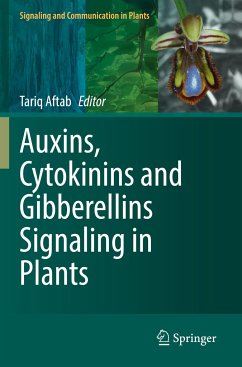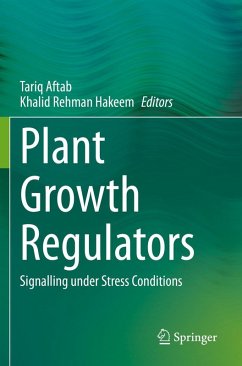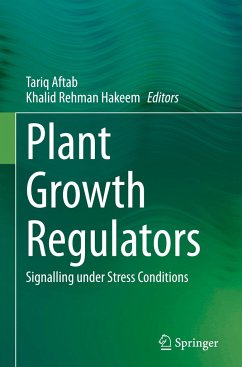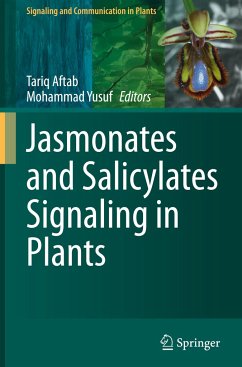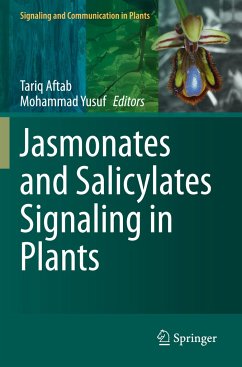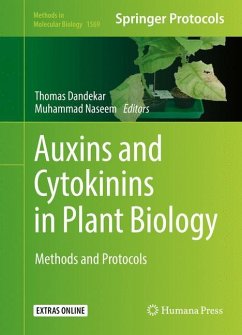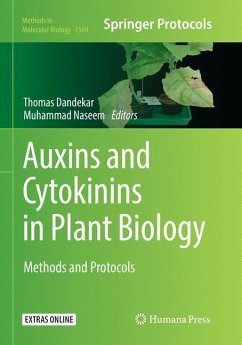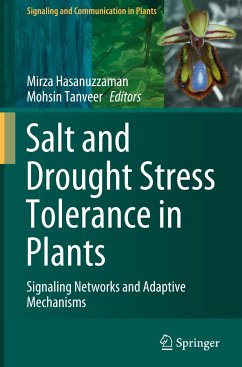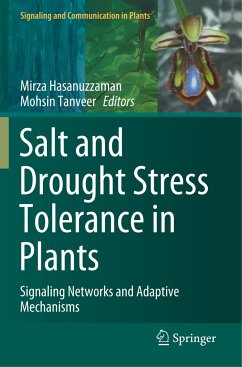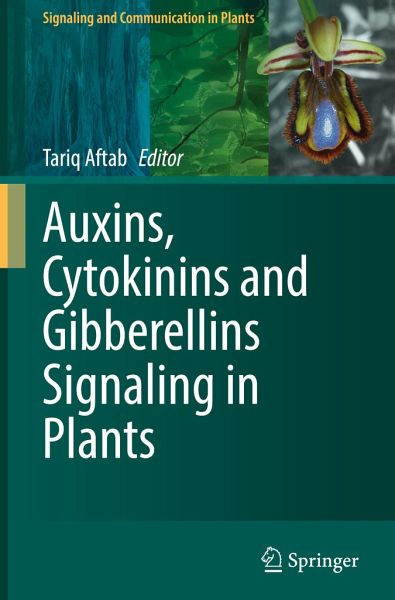
Auxins, Cytokinins and Gibberellins Signaling in Plants

PAYBACK Punkte
95 °P sammeln!
Plant hormones have pivotal roles in the regulation of plant growth, development, and reproduction. Their signaling pathways are interconnected in a complex network, which provides plants with an enormous regulatory potential to rapidly adapt to their environment and to utilize their limited resources for growth and survival in a cost-efficient manner. Auxin is a hormone molecule whose activity levels are most important for its regulatory roles during plant cell, organ, and tissue development. Therefore, the precise regulation of auxin levels is an essential mechanism to fine-tune the activity...
Plant hormones have pivotal roles in the regulation of plant growth, development, and reproduction. Their signaling pathways are interconnected in a complex network, which provides plants with an enormous regulatory potential to rapidly adapt to their environment and to utilize their limited resources for growth and survival in a cost-efficient manner. Auxin is a hormone molecule whose activity levels are most important for its regulatory roles during plant cell, organ, and tissue development. Therefore, the precise regulation of auxin levels is an essential mechanism to fine-tune the activity of this powerful hormone during plant growth and development. Likewise, cytokinins exhibit a wide range of physiological functions, including regulation of shoot and root apical meristems, stimulation of branching, vascular development, chloroplast differentiation, stabilization of the structure and function of the photosynthetic machinery, delay of senescence, stomata opening, and elevation of the sink strength and nutritional signaling. Moreover, gibberellins also regulate many aspects of plant growth and development including seed germination, stem elongation, leaf expansion, and flower and fruit development. The broad implication of gibberellins in plant development is strictly associated with tight regulation of their metabolism by multiple environmental and endogenous factors, ranging from light and temperature to other hormones including feedback control.
Understanding the significant roles of these phytohormones in plant biology, the current subject has attracted the attention of scientists from across the globe. This comprehensive volume "Auxins, Cytokinins and Gibberellins Signaling in Plants" highlights the various prospects involved in the current scenario. The book comprises the chapters from diverse areas dealing with biotechnology, molecular biology, proteomics, genomics, metabolomics, etc.
Understanding the significant roles of these phytohormones in plant biology, the current subject has attracted the attention of scientists from across the globe. This comprehensive volume "Auxins, Cytokinins and Gibberellins Signaling in Plants" highlights the various prospects involved in the current scenario. The book comprises the chapters from diverse areas dealing with biotechnology, molecular biology, proteomics, genomics, metabolomics, etc.



